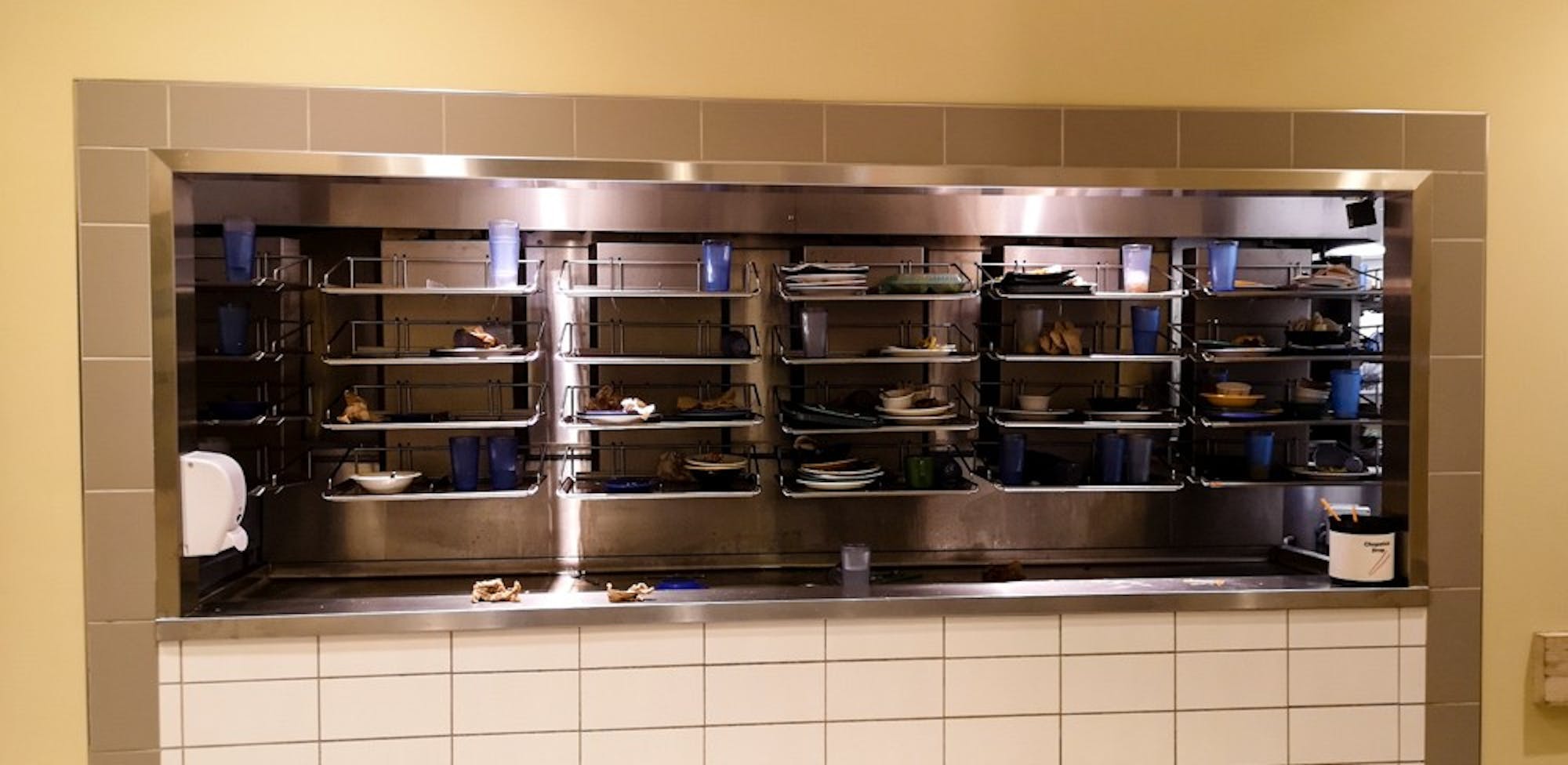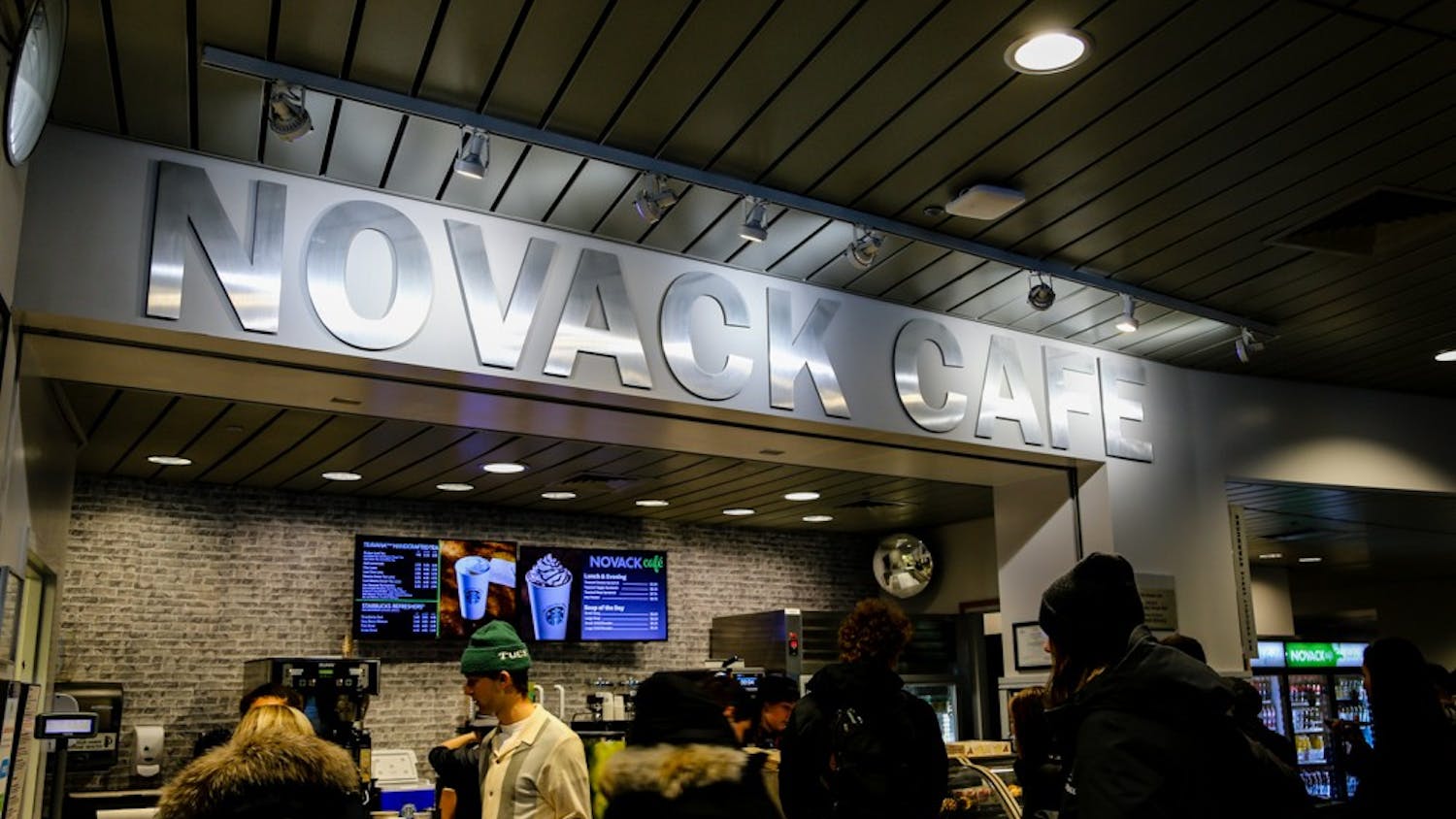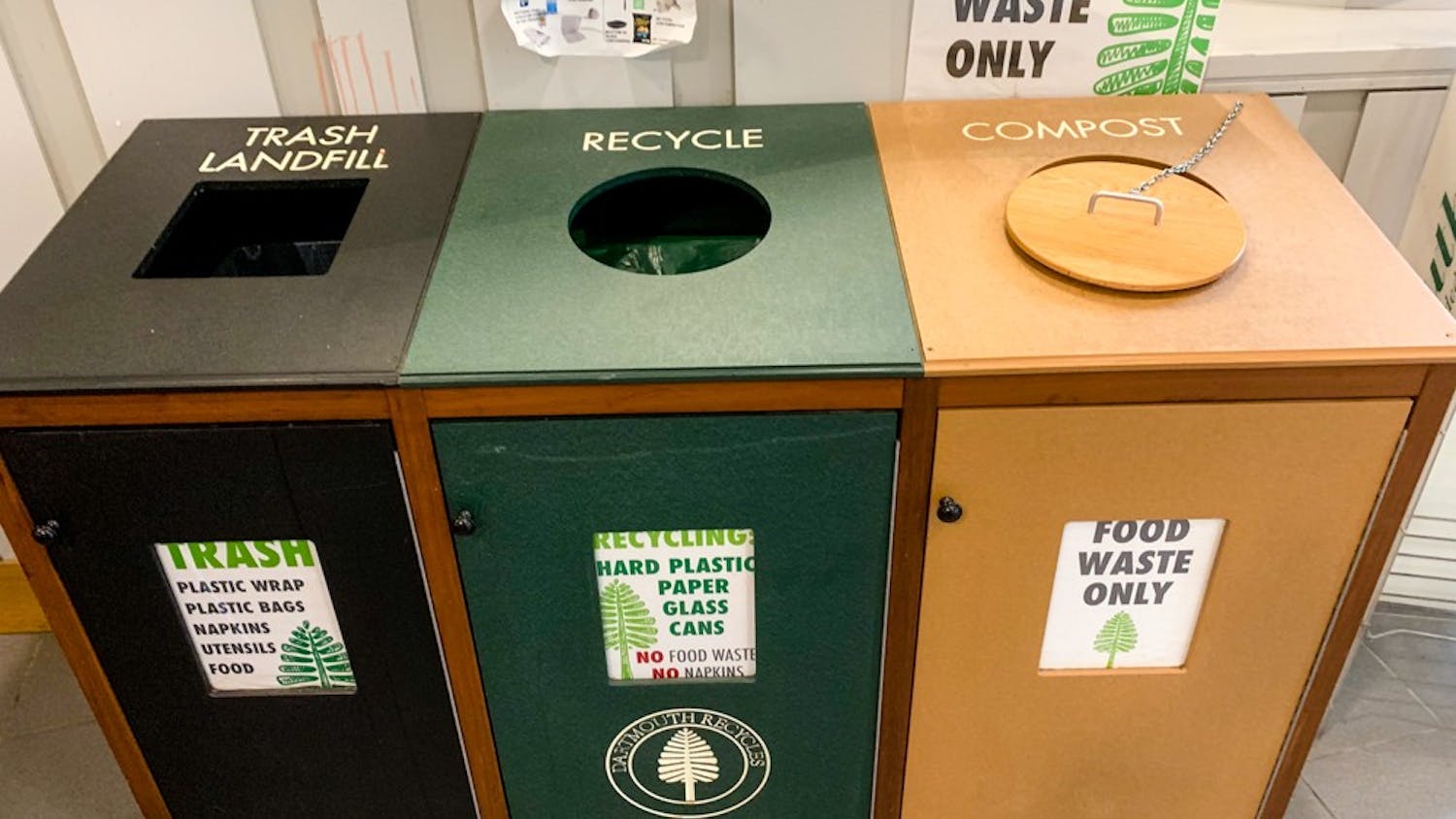As a freshman, the majority of my meals take place in the traditional dining hall setting that is the Class of 1953 Commons, more familiarly known as Foco. I go in, try to find a free booth on light side, brave the lines for sushi or Ma Thayer’s, eat and catch up with friends, get rid of my plate and cup, and leave. It is a routine, one without thought — the food seemingly appears at the stations and the dishes apparently disappear at the dish drop. But though my napkins and food scraps are spun out of sight and out of mind, they do not simply vanish.
Foco staff sort this waste into garbage, recycling and compost bins; the dishes are washed, dried and stacked; and all of the food and napkins are processed using a machine called a somat, according to Dartmouth Dining Services associate director Don Reed. Reed wrote in an email statement that the somat grinds everything up into a pulp-like compost product. This pulp is then disposed of at a landfill in Lebanon, where it is used as a biodegradable top-coat for reducing odors, according to Reed.
DDS director Jon Plodzik said that while the somat machine is certainly an improvement over previous food disposal systems, DDS is still looking to further reduce food waste.
“Our preference would be to have no food waste, no pulp, but that is what it is now,” Plodzik said.
In the 2019 fiscal year, the College produced 398 tons of food waste in the form of compost — 16 tons more than in 2018 and 18 tons more than in 2017.
Sustainability Corps program manager Marcus Welker said that DDS does try to lessen its food waste by producing nutritional information, advertising different ways of eating and monitoring the ways in which students are eating. However, he noted that DDS is ultimately limited by the wants of its customers, pointing to a combined effort of both parties as a way to decrease food waste.
“There is this real balance that exists to managing for sustainability, which in a dining facility I think includes things like food choices and other types of things, and sort of education, free will, kind of customer-driven, bottom-up approaches,” Welker said.
To try to eliminate a portion of the food waste, DDS created the “Take Less, Waste Less” program. “Take Less, Waste Less” is intended to encourage students to take only the food that they know they will finish and then go back for seconds, rather than taking too much food to begin with.
“It’s, ‘This looks good. I’m going to take two spoonfuls of it,’ versus ‘This looks good. I’m going to take one spoonful and maybe I’ll come back for more,’” Reed wrote.
Welker also commented on how DDS can help students make more sustainable decisions.
“It’s going to involve trying to create these invisible signals to users of the system about how to behave,” Welker said.
Welker gave suggestions about what some possible “invisible signals” could be, such as reducing the size of the plates in dining areas, making trays less available, changing the number of waste bins and what materials are meant to go into them, and altering the way the food is served.
According to Welker, there is a lot of waste generated by customers, and anyone just has to watch the dish drop to see it. However, changing this is difficult because there is no explicit incentive or consequence to warrant better behavior.
“The individual behaviors around waste — whether its food waste or recycling or other things on campus — are challenging to manage, because we — you, me and everybody else — do not pay for it directly in any way,” Welker said.
Food waste has significant ramifications for Earth’s changing climate. According to the Food and Agriculture Organization of the United Nations, roughly one-third, or 1.3 billion tons, of food is wasted globally every year. This food waste contributes to 8 percent of all greenhouse gas emissions. However, in the context of busy, everyday Dartmouth life, the effects can slip people’s minds.
However, there are also student-led initiatives in effect which seek to lessen food waste. Dartmouth Feeding Neighbors donates leftover food from campus dining areas to the Upper Valley Haven, a non-profit organization located in Hartford, VT which supports members of the community struggling with poverty. Full pans of food are donated before they expire, but pans that are half-eaten are ineligible for donation and disposed of.
According to Welker, the Sustainability Office’s first-year eco-representatives did a demonstration during the 2018-19 school year to show students just how much food was being wasted. They collected the scraps that were left on the Foco dish drop and placed them into bins so that when students got rid of their dishes, they could not avoid seeing it.
Welker said that while continued education is certainly helpful for decreasing the amount of food waste produced across campus, greater student involvement — that is, making DDS and the administration recognize the importance of the issue — is integral to creating lasting change in this issue.
“Simply doing that goes a long way to communicating to somebody in the leadership of different organizations on campus that students care about it, and right now I don’t think that there is a group of students telling [DDS] in a particularly strong way that they are concerned about it and that something needs to be done about it,” Welker said.




